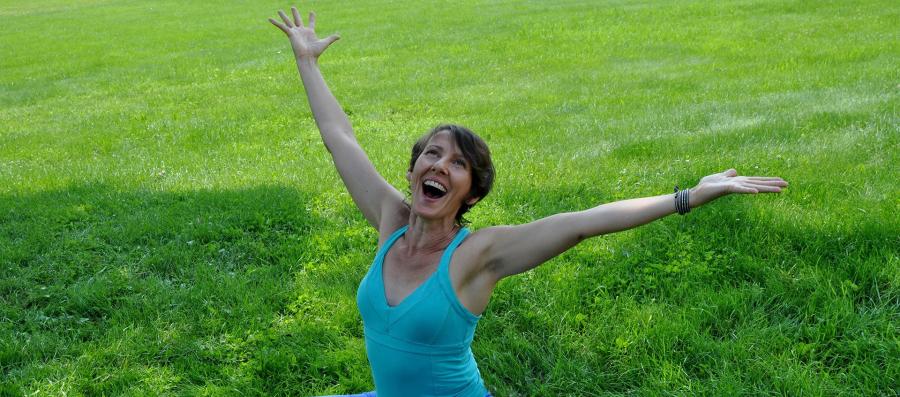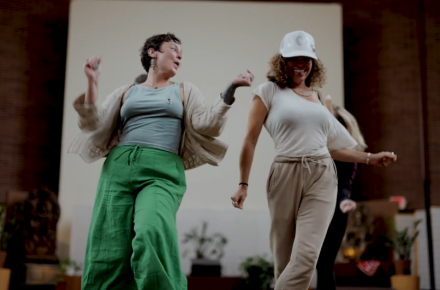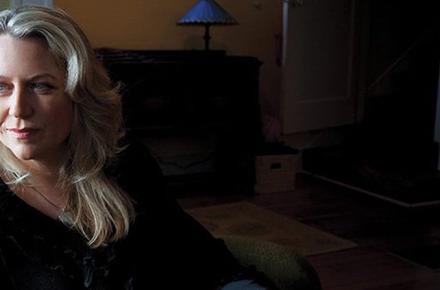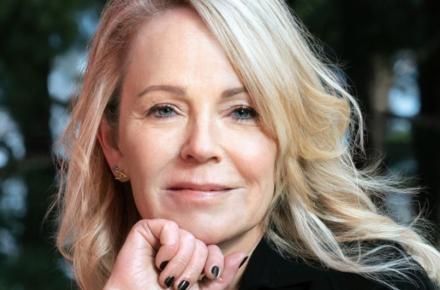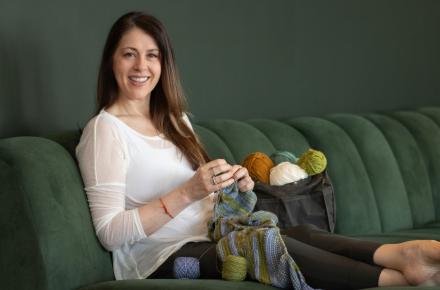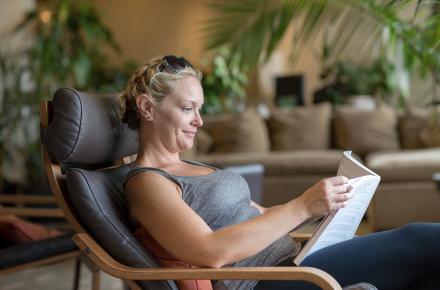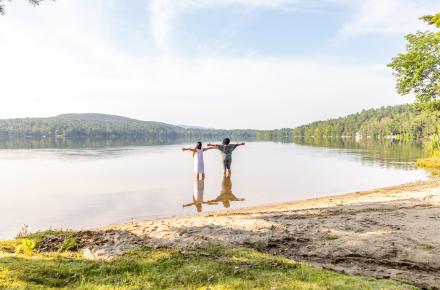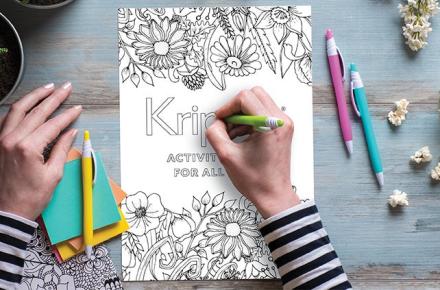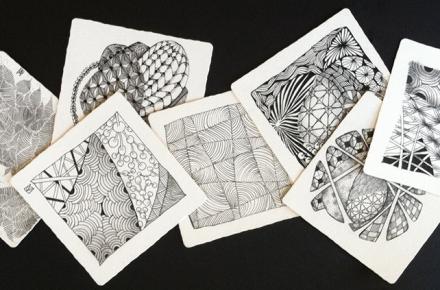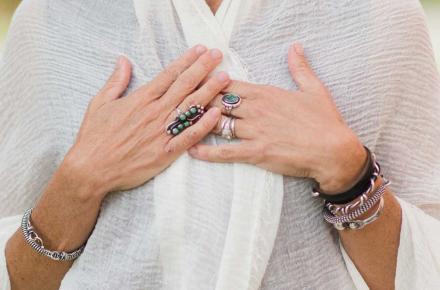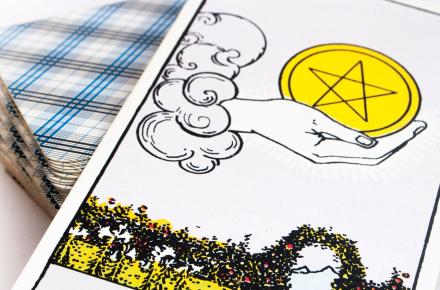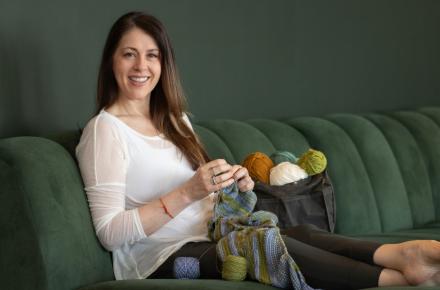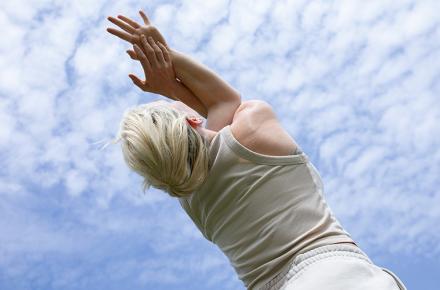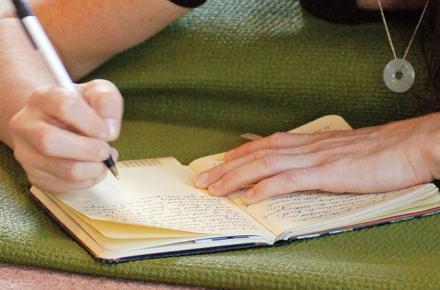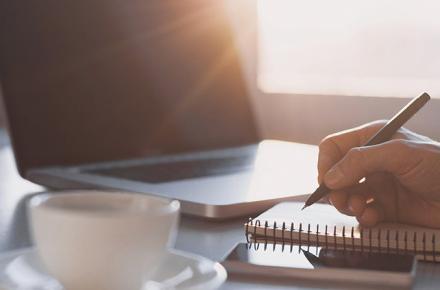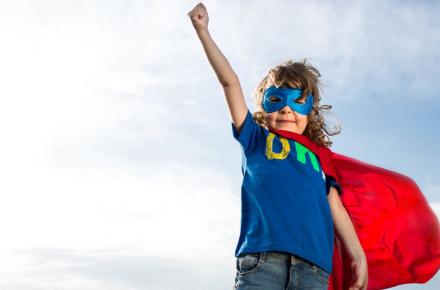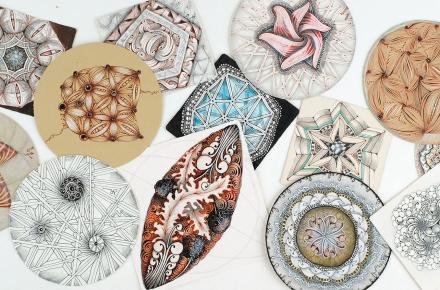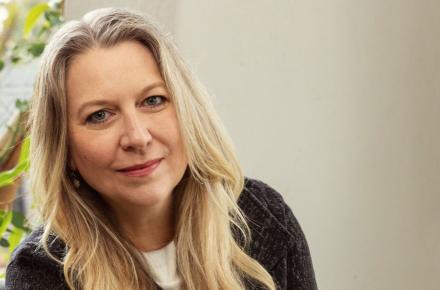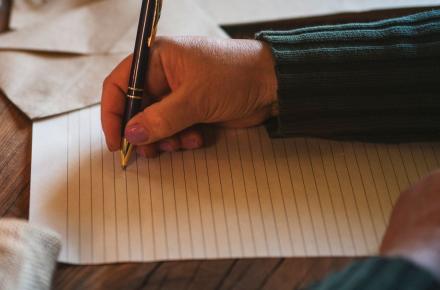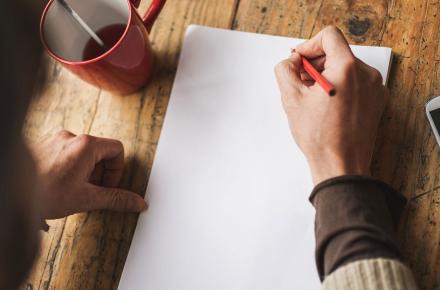The Yoga of Improv
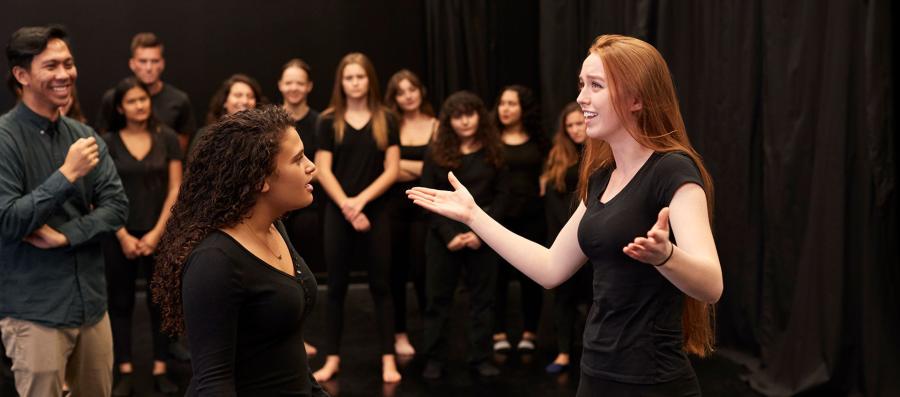
by Reyna Eisenstark
When improv comedian and author Katie Goodman was training as a yoga teacher, she realized she was drawing from the same skills she’d learned in performing and teaching improv. “Being flexible, being present, gagging your inner critic, taking creative risks, finding a connection with other people—it was all the same stuff,” she says.
Improv might seem like it’s for extroverts, but it’s actually an internal practice, just like yoga. As Katie explains, “It’s like meditating, where you let the thoughts go and you come back to your breath. In improv, you come back to your partner or the scene.” And as with yoga and meditation, with improv, every day is going to feel different, she says. Some days you’re simply more flexible or focused than others, and you have to accept that and keep going.
For people who like to know exactly what’s going to happen next, “improv is going to mess you up,” Katie adds. And that’s exactly the point. Just as in life, you can try to prepare for absolutely everything and still end up having something completely unexpected happen. “The point of improv is that it’s a practice,” Katie says. “It can help you handle anything without controlling everything.”
Letting Go of the Critic
Katie points out that are our egos are so strong, our self-preservation instincts so powerful, that we often cause ourselves unnecessary stress trying to do or say the right thing. But improv gives you a way out of this trap; you can practice being more flexible and present without having to worry about the consequences. “We can learn all these skills in a playful setting,” Katie says. “The worst that can happen is that you feel silly.”
At the beginning of her workshops, Katie has the group set an intention as a community and talk about what they want more of in their lives. She finds that many people want to be more creative and more connected to their childhood playfulness, and she believes that improv is a good way to get there.
Deep Listening
In his book Never Have Your Dog Stuffed: And Other Things I’ve Learned, the actor Alan Alda writes this about acting: “The difference between listening and pretending to listen, I discovered, is enormous. … Real listening is a willingness to let the other person change you. When I’m willing to let them change me, something happens between us that’s more interesting than a pair of dueling monologues.”
Katie would second that. “If you’re a bad listener, your scene will not work,” she says. “The scene will tell you the truth.” In her improv workshops, she begins with exercises that encourage people to work together and listen to each other. “I lead them really slowly to allow them to completely get out of their heads,” says Katie, who uses the tools of improvisational comedy to empower entrepreneurs and executives at organizations including Planned Parenthood, TEDx, and Harvard University.
Being in the Moment
Whenever someone blanks out or freezes during a scene, Katie will point this out immediately. “I’ll say, ‘Tell me what’s going through your brain. Are you feeling like you’re supposed to have the perfect line? Are you feeling like you shouldn’t jump in?’”
She’s noticed that people often start looking at everything but the scene they’re in. “They’re having a thought about what’s happening. So I ask them, ‘What’s going on for you? Look at your partner. What is something you can try?’” In new situations, most people fall into their old habits. Having a teacher point out exactly what you’re doing when you get stuck is a way to direct you back to the scene (or the mat) so you can realign and find your balance.
The Support of Community
Improv is about working with a team of others who share your intentions—in yoga, it’s called a sangha. That community creates a safe place to go out on a limb, because you know you always have support. In her professional improv group, Katie says, they do a group hug backstage before each show, and tell each other, “I got your back.”
In improv, as in yoga, as in life, it’s all about listening carefully, trusting the process, and finding the support you need. Ultimately, the practice will lead you closer to your authentic self.





